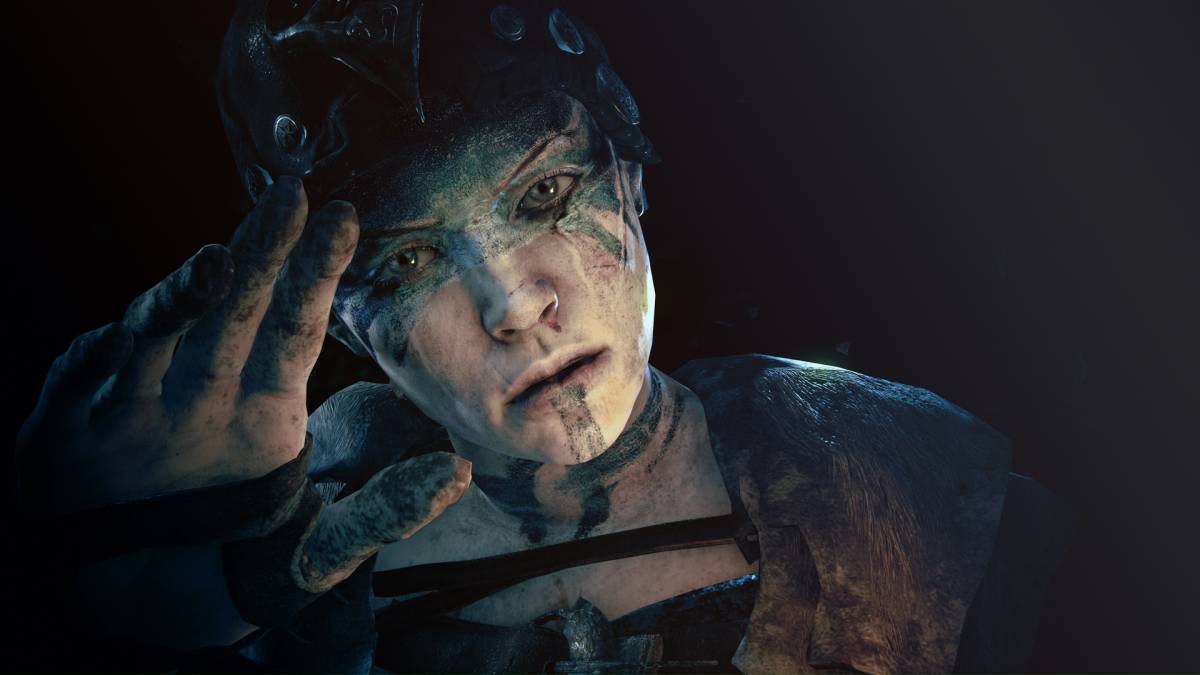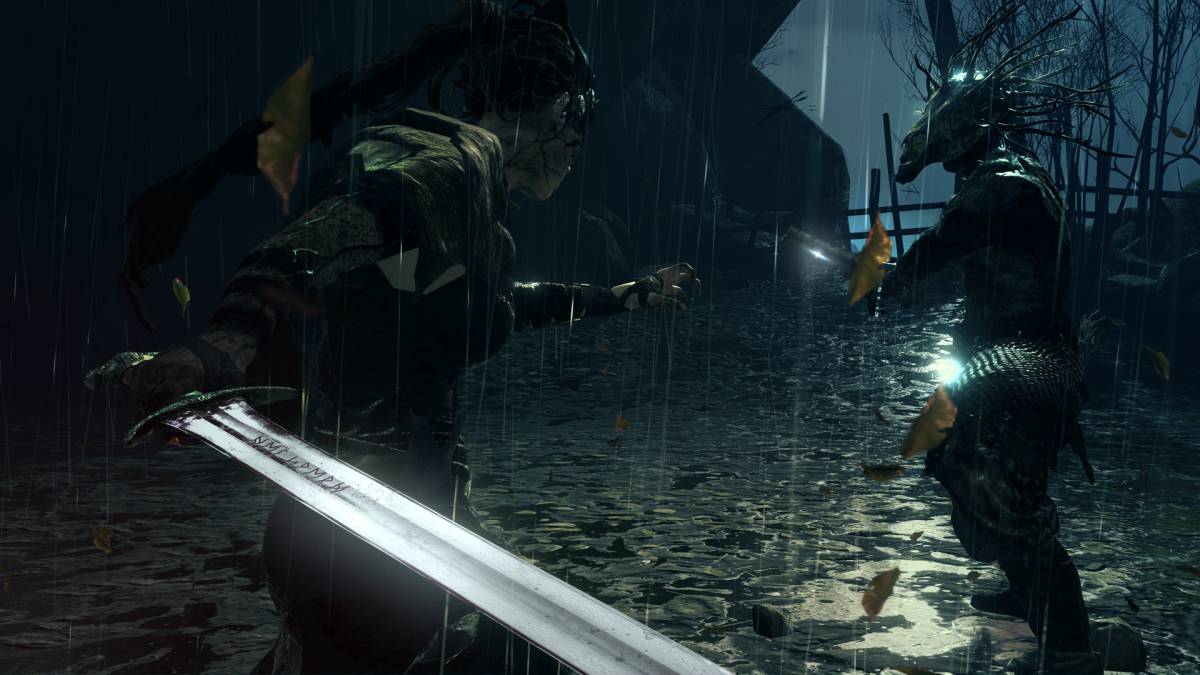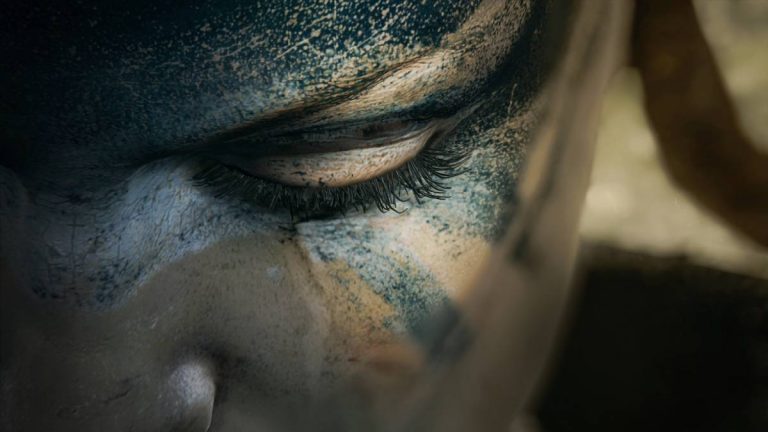Originally published July 31, 2015
Cambridge-based studio Ninja Theory, famous for titles such as Heavenly Sword, Enslaved: Odyssey to the West and the controversial DmC: Devil May Cry first announced Hellblade back at Gamescom 2014. Last month, the company revealed, in conjunction with a gameplay trailer, that Hellblade would explore themes of mental illness.
With media portrayals of mental illness acting as a bone of contention, I spoke to Dominic Matthews, (Project Development Manager at Ninja Theory) about their open development process and the lengths it is going to in order to change the ways we perceive mental illness in video games.

Tell us a little bit about Hellblade.
So we’ve been making games for about fifteen years now under a traditional publisher-developer relationship and we are an independent studio, but we haven’t made an actual independently created game yet. That’s what Hellblade is. So it’s our first independent title and we’re creating it under a new model we’re calling ‘independent-AAA’ which sounds a bit buzzwordy. Literally what we’re trying to do is create a game with the creative freedom and spirit of indie development but trying to do that as the same time as creating AAA production value.
So we’ve got a small team of fifteen people, a small budget and we’re trying to be innovative and creative in a way that we drive quality within the restrictions that we have. It’s a new way of making games for us and for the industry, so we really hope it’s successful.
Hellblade itself is a combination of melee combat and story-led exploration and it tells the story of Senua who is a Celtic warrior and her personal journey into hell. That hell is a manifestation of her own mental illness, so as a player, you see and experience the world through her eyes and she experiences psychosis as part of her mental illness, that comes in the form of hallucinations and delusions in both visual and auditory forms. The game is about us doubling down on the things I think we’re known for such as melee combat, unique art visions and telling compelling stories.
 Hellblade explores a relatively untapped area of British history – Senua is a Celt who has been traumatised in some way by a Viking invasion. Why did you choose this setting in order to explore the subject of mental illness?
Hellblade explores a relatively untapped area of British history – Senua is a Celt who has been traumatised in some way by a Viking invasion. Why did you choose this setting in order to explore the subject of mental illness?
You’re correct in that the game is set just after the Viking invasion of the Pictish Celts, which are a clan that were wiped out by the Vikings. Senua is a survivor of that invasion and really the story of Hellblade tells her coming to terms with the trauma and the violence of her past. I think the connection really between the setting and the theme of mental health is that by setting the game in a fictional-historical setting, it allows people to break away from their preconceptions about mental health as it presents the characters and themes in a setting outside people’s modern lives and their modern understanding of the world, which allows audiences to interpret characters in different ways.
Obviously, you’re working closely with Psychiatrist and Professor of Health Neuroscience from the University of Cambridge, Paul Fletcher and Wellcome Trust. Could you explore the collaborative process?
Well done, you managed to get his job title spot on! We reached out to Professor Paul Fletcher and the University of Cambridge early on and we started talking to him about the theme of mental health. Initially, Paul came in and met with myself and Tameem [Antoniades] (Chief Creative Ninja) and gave us a foundational understanding of psychosis and mental health. We then broadened that out to a presentation with the whole team. From then on it’s been regular contact with Paul who doesn’t just look at what we’re doing and say “Yes, that’s in line with the science or it’s not,” he’s actually having an input on the creative as he can talk from his experience of the types of things that people have experienced with mental health difficulties, hallucinations and with delusions. All of that is feeding back into the game itself.
Other involvement comes from the Wellcome Trust, who are a global charitable foundation who are in-part interested in broadening the understanding of science, so they’re supporting the project because they see potential for engaging people in mental health as a scientific theme. They support our work with Paul and granted us a Development Award, which allows us to continue working with Paul, but they are also very helpful in giving us access to other experts and also things like working with their press office who have been great with helping us to engage with people. The next step for us is working more closely with individuals and groups of individuals that have personal experience of mental health difficulties, which is really valuable to us.
To be able to get that personal insight from people’s own experiences and the openness and support that people have shown towards us has been incredible, as we are doing something different and something new, by taking video games as a form of entertainment – which often hasn’t dealt with mental health quite as sensitively as it should have – and we’re dedicated and determined to treating mental health with all the respect that it deserves. It has been great to have such a level of support from Paul, the Wellcome Trust and other organisations and just people in the public who may have experienced these things themselves, or families or friends. We’ve had loads of supportive messages from people that are really willing for us to get this right, which is just great.

You mentioned previous representations of mental illness in video games and from titles such as Eternal Darkness to more recent games such as Far Cry 3, mental illness and insanity have become somewhat synonymous with villainy. How are you seeking to change the way mental illness is represented in video games?
Well I think for us, we want to portray Senua’s personal experiences with mental illness in a truthful manner.
So I think that everyone’s experience of mental health difficulties are individual and personal to them so we can’t hope to represent everyone’s, or in fact anyone’s individual journey with mental illness. But I think that mental health is still a subject that is grossly misunderstood and a taboo within society. It affects so many people, I mean if you look at statistics on mental health it’s phenomenal, the amount that experience mental health difficulties and in fact, I think almost anybody, at any point in their life, will experience or be close to someone who experience it, so it’s something that affects a lot of people but it’s not really understood.
For us in Hellblade, I think first and foremost we want to create a game that is compelling and entertaining, but I think that by having a truthful portrayal of mental health, then we might also be able to help people understand mental health, which I think is the way to sum up what we’re trying to do here. I think for us, taking a player on a journey with a character that is suffering from mental illness is very different from someone watching another character that is suffering from mental illness. You, as the player, often witness another character that is suffering from mental illness. What we want to do is take the player and to represent some of that struggle and allow you to experience what they’re struggling with.
Has collaboration with these parties opened your eyes to anything or changed any preconceptions you had before you began development on Hellblade?
Yeah absolutely.
I’ve been working on this project now since March last year, and through the research and the work with Paul Fletcher and other groups, my understanding of mental health is far deeper now than it every has been. It’s incredibly complex mental health, people can experience such a diverse range of experiences. But I think actually to understand mental health on a very foundational level is very straightforward in a sense.
Taking the time to look at that to try and understand it has taught me a lot and I’m still learning – as is the team – with every personal experience and we still can’t hope to understand everything about it. There is a deeper understanding in my every day life now and I do notice things a lot more and I think I certainly look at things now differently and have a better understanding of the sorts of things people are experiencing.
One area that is quite interesting actually is that hallucinations and delusions are often assumed to be quite dark and nightmarish. Whilst a lot of people do experience that, some people have quite vivid and bright hallucinations as well, which is something that I’ve never thought of before. That kind of diversity has certainly opened my eyes to the breadth of experience people have.
Is that something that you hope will translate to your audience when the game releases?
Absolutely. There’s a very deep well of material there for us to learn from and to try and translate into the game, either through visuals or through mechanics.
In your recent titles, notably Enslaved: Odyssey to the West and DmC: Devil May Cry, the environment plays a key role in the gameplay experience. How are you seeking to continue this trend with Hellblade?
Yeah, I mean it’s something that we really like which is to create worlds that are really vivid and full of life. We did that in DmC: Devil May Cry with Limbo, where we tried to create a world that felt like it was a character itself; it was trying to stop Dante. In Hellblade, we are creating this world that is full of life, full of dynamism and it’s very vivid, but can be very frightening at the same time. So that’s something that we want to deliver – a twisted world as Senua sees it.

You mentioned an ‘independent-AAA’ approach that Ninja Theory is taking this time around and this is the first time that you are both developing and publishing a title. Why have you chosen to publish the game yourselves?
So I think independence allows us to have creative control over what we do and the growth of digital distribution allows us to deliver the game straight to our fans and our audience. It also allows us to charge a lower price in comparison to the fixed price of ‘AAA’ titles.
That’s a great thing for us as we can really cut out the middle men involved in taking a game from the developer through to the audience so to be able to self-fund the game and self-publish the game gives us a lot more creative control, it allows us to get the most out of our budget so we can focus much more on development and ultimately make the choices as to how to market and promote the game.
We’re taking the opportunity with Hellblade to develop the game openly, so we’re creating our development diaries, blog posts and releasing a lot of artwork on www.hellblade.com. The idea of that really is that it’s very rare that people give a genuine insight into game development and we wanted to take the opportunity to be open, to break away from the drip-feeding of information through to the players so we can share the game as it evolves at every step. We can only really do that type of thing by developing and publishing the game ourselves.
One more question. You’re due to appear at Gamescom next week. Is there anything you can reveal about what you intend to show?
At Gamescom we’re doing a behind-closed-doors session. There’s nothing new really, except that we have a first-playable demo which is a really early-version of the game and it’s a lot earlier than what we would normally show to people but as part of out open-development, we want to show people the game as its made. I’ll be giving press the opportunity to play the game hands-on, so people will have the chance to experience it.
That’s brilliant, thanks for taking the time to do this. Good luck with the rest of the development and we’re looking forward to getting our hands on the game!
Thanks a lot for being interested in Hellblade, it’s great to have the support as there’s a tonne of great games out there, so to be able to tell people about the game is great!
All images curated from Hellblade’s official website
Some of the coverage you find on Cultured Vultures contains affiliate links, which provide us with small commissions based on purchases made from visiting our site. We cover gaming news, movie reviews, wrestling and much more.



